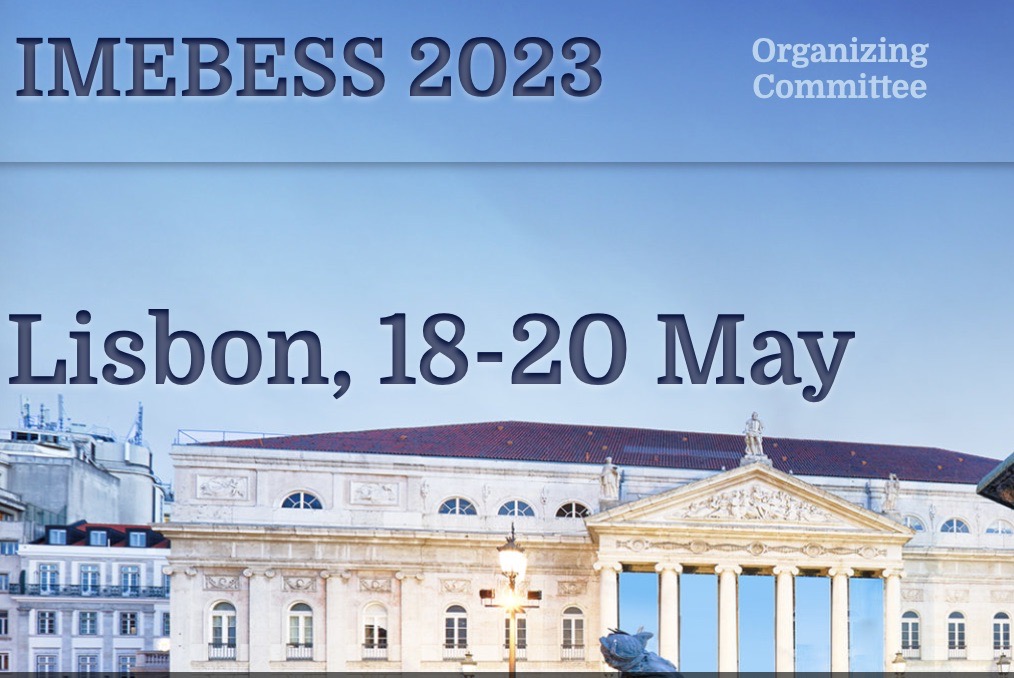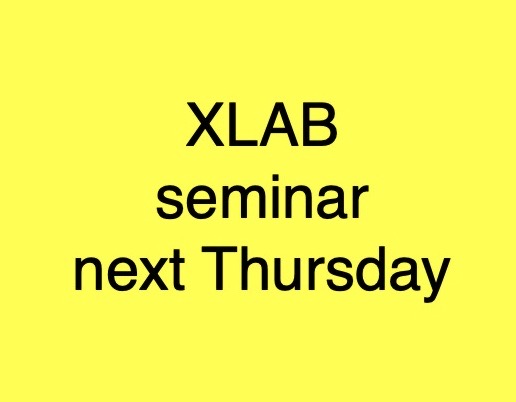Guest Speakers IMEBESS Lisbon 18-20 May at ISEG: Abigail Barr (Nottingham), Alexander Cappelen (NHH), Ryan Enos (Harvard), Eleonor Power (LSE). Registration open at imebess.org
Author: Ines
Seminar, next Thursday at 14h00, room Delta
February 13, 2023
This week XLAB is hosting a seminar. It will take place on Thursday, February 16, from 14h00 to 15h00, room Delta (Quelhas building).
Diogo Geraldes (University College Dublin) will present the paper An Experiment on Gender Representation in Majoritarian Bargaining.
More information below.
____________________________________________________________
Presenter: Diogo Geraldes, University College Dublin
Title: An Experiment on Gender Representation in Majoritarian Bargaining.
Abstract: Women are underrepresented in political and business decision-making bodies across the world. To investigate the causal effect of gender representation on multilateral negotiations, we experimentally manipulate the composition of triads in a majoritarian, divide-the-dollar game. First, we find that inclusive splits and unanimous agreement rates are highest in all- female groups and lowest in all-male groups suggesting that female representation increases fairness. Second, we document a robust gender gap in earnings, driven largely by the exclusion of women from coalitions rather than differential shares within coalitions. Interestingly, we find that distinct bargaining dynamics can underlie the same inequitable outcomes: While gender-biased outcomes are sometimes caused by outright discrimination, they can also be driven by more complex dynamics related to gender differences in bargaining strategies. These different dynamics manifest in mixed-gender coalitions being less stable when the excluded party is male rather than female.
July 10, 2022
Entre os dias 11 e 15 de julho decorre no XLAB um novo estudo em economia experimental. Ao participar, podes receber até 52€, sendo o pagamento médio de 30€. A duração prevista é de 90 mins.
Se quiseres participar, envia um email para passda.xlab@gmail.com .
Forever Young, by Carlos Lourenço
April 11, 2022
From brands to colleges to charity organizations or even political parties and politicians, nowadays virtually all those who need to reach an audience often employ modern communication strategies that include video ads featuring music, in particular, excerpts of songs that were popular at some point during the target audience’s coming-of-age period, the developmental stage that goes from adolescence to early adulthood.
But how does this strategy work? And, does it always work?
The much-promised effectiveness of such widespread practice aimed at grabbing the attention of video ad viewers is anchored on research in social and economic psychology, marketing, and related fields showing that consumers have strong preferences for information and cultural goods they first experience or are exposed to during their coming-of-age.
For instance, popular songs that hit the charts and that individuals listen to during that formative period appear to remain preferred throughout life. Past studies have suggested that these peaked preferences for popular songs are associated with those songs’ ability to evoke strong autobiographical memories and their accompanying emotions.
In a series of multi-method experimental studies that collected not only self-reported ad- and brand-attitudes but also actual brand name recall and blood oxygenation of brain areas, our team has challenged this simple view and has proposed and validated a more nuanced process by which coming-of-age songs in video ads may enhance their effectiveness.
Specifically, we have shown that song-evoked coming-of-age memories and emotions — and brand recall — are not affected by a video ad’s “coming-of-age song” — one that became popular when the video ad viewer was an adolescent to an early adult — directly or per se, but through the greater familiarity with that song that makes viewers like that song more.
In other words, an unfamiliar song, even if it became popular when a video ad viewer was coming-of-age, will not do.
Our studies have also revealed other limits to the coming-of-age music-based communication strategies. Specifically, video ads that play treasured coming-of-age songs but have a poor production that makes it blatant what their strategy is, have no greater effectiveness among viewers of the same age than video ads that play popular songs from other time periods.




